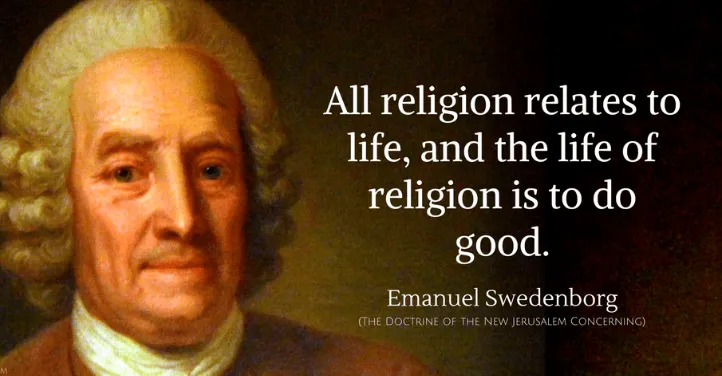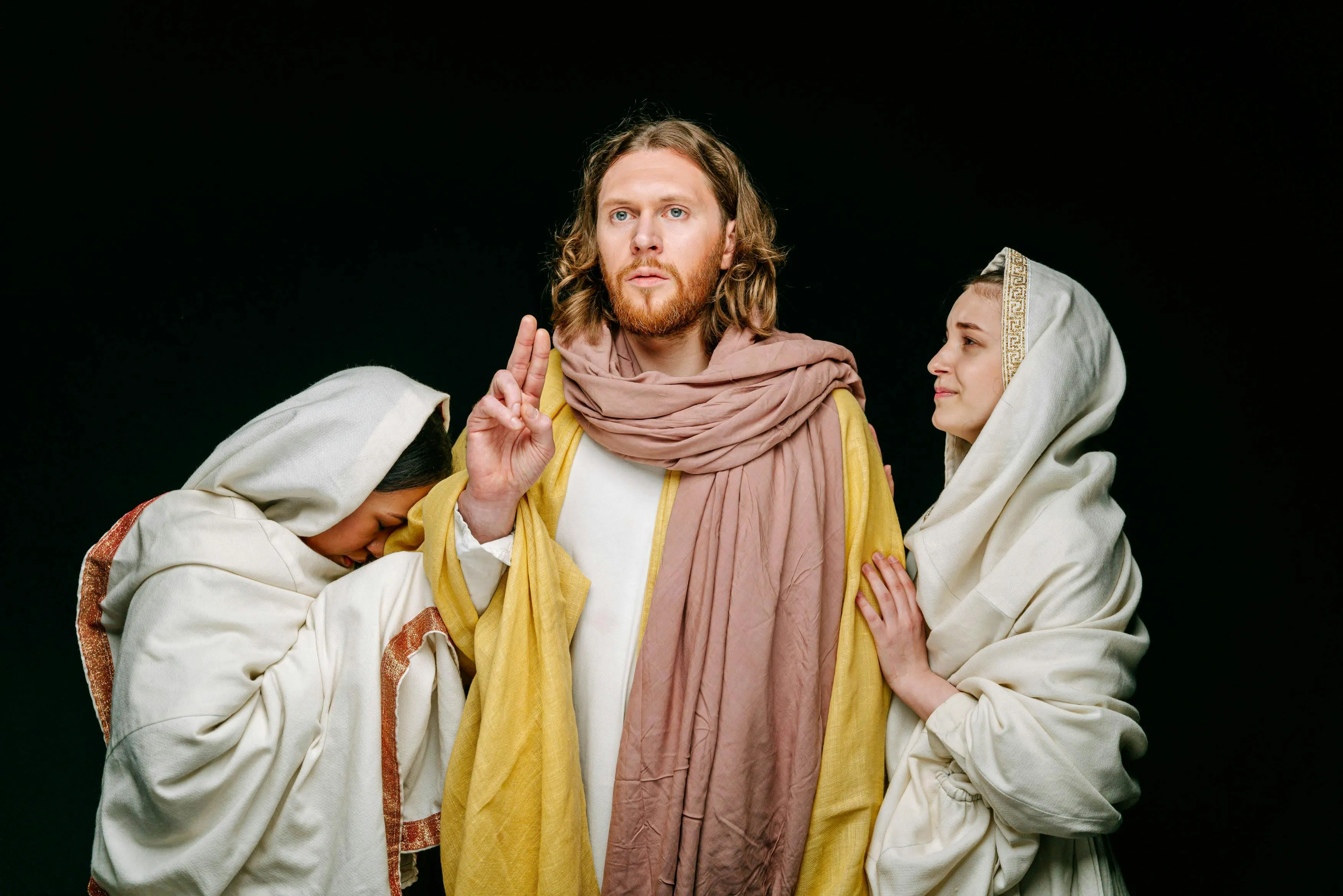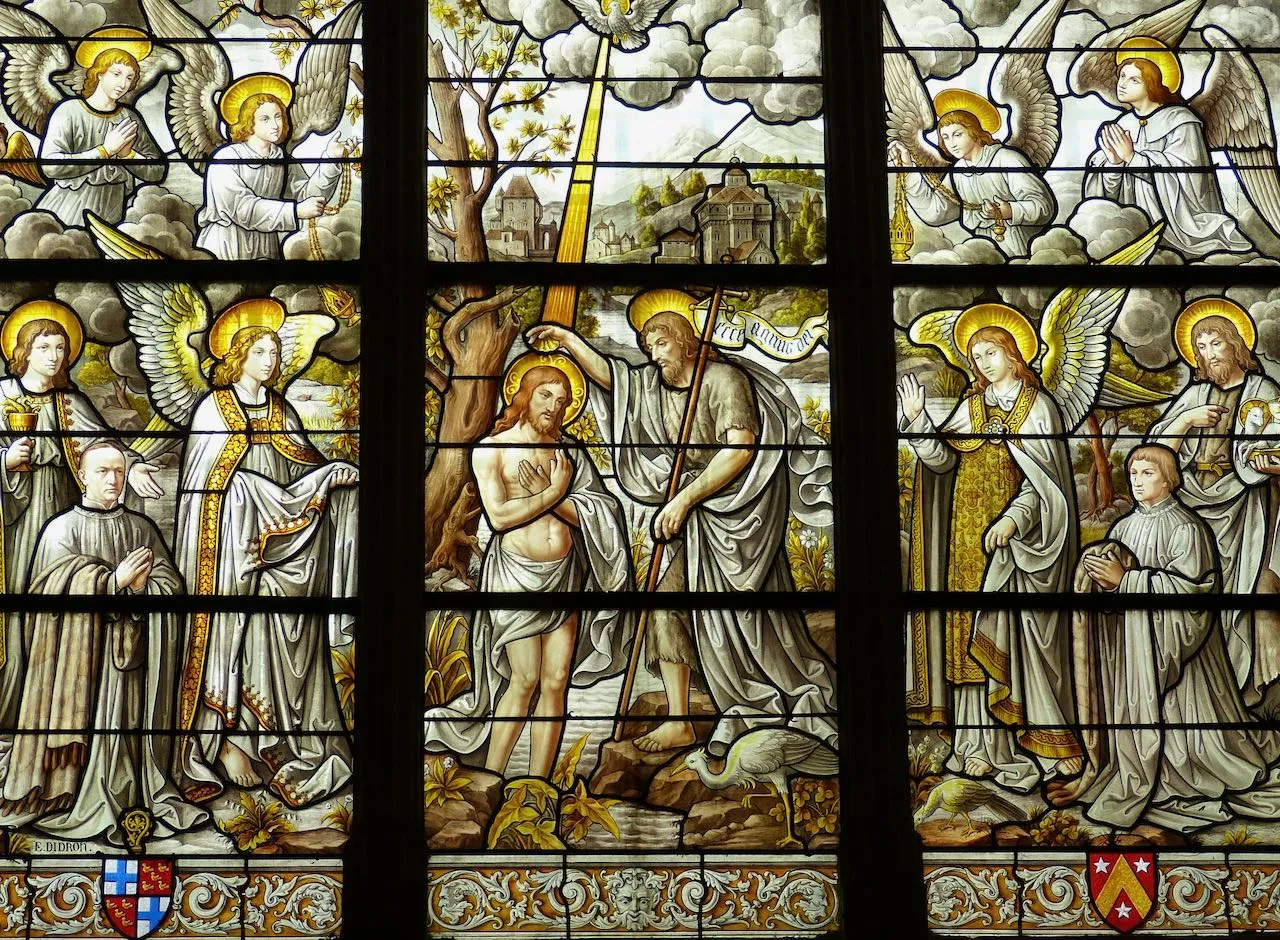Course Content
Certificate
The Life of Swedenborg

In this course you will be given an introduction into the life and teaching of Emanuel Swedenborg (1688-1772) that will serve as a foundation to the other courses in the Certificate programme. As you progress through the course you will come to appreciate how events in Swedenborg’s life informed his thinking and, under the Lord’s providence, contributed to his preparation for the reception of spiritual ideas from the Word by which the Lord’s made His Second Advent.
Heavenly Doctrine 1
 This course offers a survey of the Heavenly Doctrines using as its principal text the work The New Jerusalem and its Heavenly Doctrine. On completion of this course students will have gained an understanding of the key concepts on which the faith and practice of Spiritual Christianity is founded.
This course offers a survey of the Heavenly Doctrines using as its principal text the work The New Jerusalem and its Heavenly Doctrine. On completion of this course students will have gained an understanding of the key concepts on which the faith and practice of Spiritual Christianity is founded.
Heavenly Doctrine 2
 This course offers a survey of the Heavenly Doctrines using as its principal text the work The New Jerusalem and its Heavenly Doctrine. On completion of this course students will have gained an understanding of the key concepts on which the faith and practice of Spiritual Christianity is founded.
This course offers a survey of the Heavenly Doctrines using as its principal text the work The New Jerusalem and its Heavenly Doctrine. On completion of this course students will have gained an understanding of the key concepts on which the faith and practice of Spiritual Christianity is founded.
Correspondences
 Understanding correspondences is the key to understanding the dynamic relationship that exists between the spiritual and natural levels of existence in every domain of human life. Of particular interest is how knowledge of the science of correspondence is able to lead a person into the unfathomable depths of meaning contained in the Bible and bring this text to life as we learn to see in its stories the story of our own spiritual awakening and regeneration.
Understanding correspondences is the key to understanding the dynamic relationship that exists between the spiritual and natural levels of existence in every domain of human life. Of particular interest is how knowledge of the science of correspondence is able to lead a person into the unfathomable depths of meaning contained in the Bible and bring this text to life as we learn to see in its stories the story of our own spiritual awakening and regeneration.
The Bible

This course offers students an opportunity to get an overview of the content of the Bible along with a sense of connection between those books that make up the New Church canon or the Word found within it. The nature of Sacred Scripture is explored in terms of the relationship between its literal and spiritual levels of meaning and its application to living a spiritual life.
Diploma
The Lords Love

The first of the Core Courses towards the Diploma in Spiritual Christianity The Lord’s Love looks at the nature and operation of the Lord’s love under 5 Broad Category Headings as follows…
- The nature of the Lord’s love
- What the Lord’s love seeks to accomplish
- How the Lord’s love operates
- The effects and impacts of the Lord’s love
- Responses to the Lord’s love or how it is received
The Incarnation and Glorification

In this course we explore the profound subject of the Lord’s incarnation and glorification as presented in the Heavenly Doctrine and its application on both the universal and personal levels of existence.
The Divine Human

The Divine Human refers to the ultimate manifestation of God in human form. Unlike traditional views that separate the divine from the human, Swedenborg proposed a unifying principle where the divine essence permeates all aspects of humanity.
In his theological works, particularly in “Divine Love and Wisdom” and “True Christianity,” Swedenborg described a cosmic order in which the Divine Human represents the unity of God’s love and wisdom.
He asserted that every individual is a recipient of this divine influx, and the process of spiritual evolution involves aligning one’s life with these divine principles.
According to Swedenborg, the Divine Human serves as a guide for human transformation, encouraging a profound connection between the divine and the earthly. This perspective offers a holistic understanding of spirituality, emphasizing the integration of divine qualities into the fabric of human existence.
The Nature of Self

Emanuel Swedenborg’s exploration of the nature of self is deeply rooted in his mystical and theological perspectives. According to Swedenborg, the self is not a separate entity isolated from the divine; instead, it is intricately connected to the spiritual realm.
He proposed that the human self consists of both a material body and a spiritual essence, with the latter being a direct extension of divine influence. In Swedenborg’s view, the journey of self-discovery involves recognizing and aligning one’s intentions and actions with divine principles.
He emphasized the importance of spiritual regeneration and the purification of the self through a process of inner reflection and conscious living. Swedenborg’s teachings suggest that true selfhood is realized when individuals transcend ego-driven desires and open themselves to the inflow of divine love and wisdom.
In this way, the nature of self, according to Swedenborg, transcends the limitations of the material world and finds its ultimate purpose in a harmonious union with the divine.
The Management of States

Emanuel Swedenborg’s insights into the management of states are deeply rooted in his spiritual and philosophical perspectives. While not a political theorist in the conventional sense, Swedenborg did touch upon the principles of governance in his extensive theological works.
He believed that the well being of a state is intricately connected to the spiritual and moral character of its citizens and leaders. Swedenborg proposed that true statesmanship involves a commitment to justice, virtue, and the common good.
Leaders, in his view, should be guided by spiritual principles and a genuine concern for the welfare of the people they govern. He emphasized the importance of fairness, integrity, and the pursuit of policies that promote the spiritual and moral development of society.
In Swedenborg’s vision, the management of states extends beyond mere political and economic considerations to encompass the ethical and spiritual dimensions of collective life, creating a framework for a harmonious and spiritually enriched society.